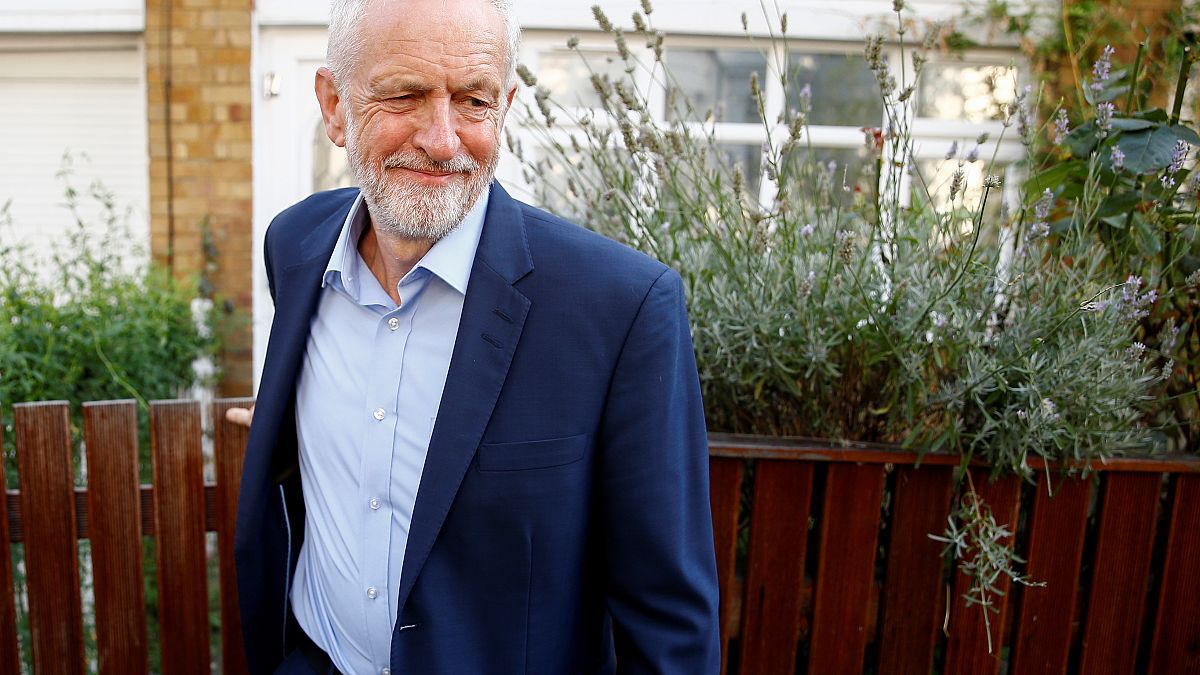He never expected to be Labour leader - now he could be Britain's next PM.
Jeremy Corbyn was never supposed to lead the Labour party.
A veteran back-bencher, Corbyn was a rank outsider when Ed Miliband resigned following the May 2015 election. Three months later he beat rival Andy Burnham with almost 60% of the vote after a grassroots campaign amongst the rank-and-file Labour membership.
“Corbyn was never a career politician. He was too unassuming - and too left-wing - to be considered a potential leader,” said Richard Seymour, author of Corbyn: The Strange Rebirth of Radical Politics, adding that Corbyn was “as stunned as anyone” by the result.
But that groundswell of support from young people, trade unions and a number of cultural figures and celebrities came alongside an almost relentless campaign against his leadership from within Labour party ranks.
In 2016, his less-than-enthusiastic support for the Remain campaign was blamed for the result of the Brexit referendum.
'Go, man!'
A few days after the result, even Prime Minister David Cameron - who had already resigned following the referendum - taunted Corbyn in the House of Commons. Leaning across the dispatch box he said, to raucous cheers: “For heaven’s sake man, go.”
Yet just a year later, Corbyn had led Labour to a remarkable result at a snap general election, gaining 30 seats, confounding polling and wiping out Theresa May’s majority in parliament.
Suddenly, Corbyn moving into 10 Downing Street didn’t seem ridiculous at all.
“With the immense leap forward Labour took in that election, Corbyn secured plenty of time, latitude and support to keep working for his agenda. Brexit has complicated this [but] Corbyn’s position as leader is currently unassailable," says Seymour.
It is true that Corbyn is unlikely to face a leadership challenge from within Labour ranks, not least given how comfortably he beat Owen Smith in 2016. But it has hardly been smooth sailing for Corbyn in recent months.
Labour has been battered by an ongoing scandal over anti-semitism, while voices within the Labour continue to rally against Corbyn and the perceived left-wing takeover of the party.
Corbyn, meanwhile, has argued that he is the only person capable of leading the UK out of the current Brexit chaos. On Tuesday, he met with leaders of all five UK opposition parties to discuss legislation that would prevent Boris Johnson leaving the UK without a deal.
Caretaker government
Prior to the meeting, Corbyn had argued that following a vote of no confidence when parliament returns in September, he could lead a caretaker government to steer Britain through the negotiations over leaving the EU, paving the way for either a deal or a second referendum.
Speaking yesterday, Corbyn said he was open to any and all options to prevent no deal.
And while talk has cooled on the prospect - it was rejected by MPs from across the spectrum, including within the Labour party - Corbyn still has an eye on No. 10.
“I think he still hasn’t given up on the idea that he should be the person to lead a caretaker government,” said Tim Bale, Professor of Politics at the Queen Mary University of London. “He regards the opportunity to become PM and to go into an election as PM a golden opportunity.”
Despite his new commitment to a second referendum, Corbyn was a euro-sceptic before he took the Labour leadership - and his critics maintain that he is still one.
“Back in the day of course they were all very anti-EU, because it was seen as a capitalist construct and he finds it hard to soften his position on anything,” said Nigel Cawthorne, the author of Jeremy Corbyn: Leading from the Left, which was published in 2015.
“But he’s being forced into it: He can’t be seen to be supporting the policies of the Tory government. He has to build consensus with other parties, and the Remainer wing of the Labour party, which is what real politics is all about.”
Whether Corbyn continues as Labour leader or not, says Matthew Goodwin, professor of politics in the School of Politics and International Relations at the University of Kent, and associate fellow at Chatham House, the party he led has changed for good.
“We’re not likely to see any return to moderate, centre-left democratic Labour politics. We’re going to see a continuation of Corbynism even if Jeremy Corbyn is not leading the project.”


